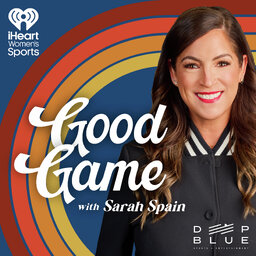The Only Competition is the Status Quo with Jenny Nguyen
Jenny Nguyen, founder of The Sports Bra women’s sports bar in Portland, Oregon, joins Sarah to discuss her transition from chef to bar owner, betting her life savings on her vision, how opening the bar changed her relationship with her parents, and how to know a risk is worth taking.
-
Interested in starting your own Sports Bra franchise? Check it out here
-
Follow the Sports Bra on social media! Instagram: @thesportsbrapdx; Bluesky: @thesportsbra.bsky.social; Twitter/X: @thesportsbrapdx
-
Leave us a voicemail at 872-204-5070 or send us a note at goodgame@wondermedianetwork.com
-
Follow Sarah on social! Bluesky: @sarahspain.bsky.social Instagram: @Spain2323
-
Follow producer Misha Jones! Bluesky: @mishthejrnalist.bsky.social Instagram: @mishthejrnalist TikTok: @mishthejrnalist
-
Follow producer Alex Azzi! Bluesky: @byalexazzi.bsky.social
 Good Game with Sarah Spain
Good Game with Sarah Spain


